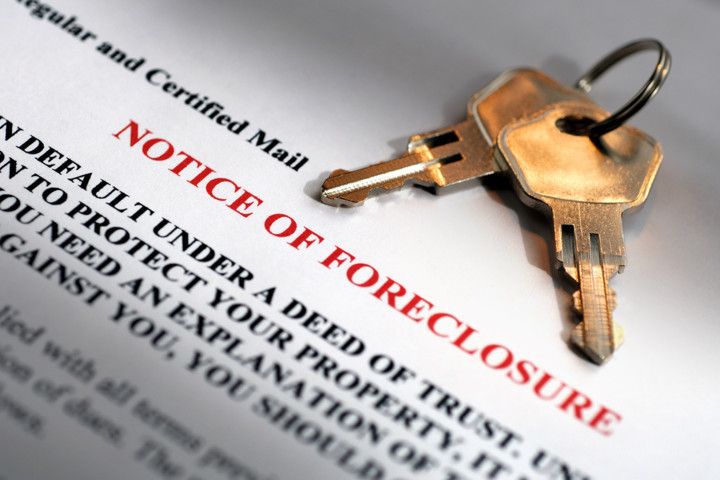
What Should You Know About the Foreclosure Process and Investment Opportunities?
The foreclosure process presents unique challenges and opportunities within the real estate market. For property investors, understanding the ins and outs of foreclosure can open doors to potential investment deals that may offer below-market prices. However, purchasing foreclosed properties involves risks and responsibilities that must be carefully managed.
In this guide, we’ll cover what you need to know about the foreclosure process, its stages, the risks and benefits, and strategies for identifying and purchasing foreclosure properties as part of a successful investment strategy.
Understanding the Foreclosure Process
Foreclosure is a legal process when a homeowner fails to make mortgage payments, leading the lender to seize the property. The purpose of foreclosure is to recoup the lender’s losses by selling the property. The process typically involves multiple stages, each presenting different opportunities and considerations for investors.
Key Stages of the Foreclosure Process
Pre-Foreclosure
Pre-foreclosure begins when a homeowner misses mortgage payments, and the lender issues a notice of default (NOD). During this stage, the homeowner can resolve the debt or sell the property before it moves into foreclosure. Investors can approach homeowners in pre-foreclosure with purchase offers that may help them avoid foreclosure and benefit from a sale.
Auction or Trustee Sale
The property may go to auction if the homeowner cannot resolve the debt during pre-foreclosure. At this stage, the property is publicly auctioned to the highest bidder. Auctions often offer reduced-price properties, though buyers may need to pay in cash, and inspection opportunities are usually limited.
Bank-Owned or Real Estate Owned (REO)
If a property does not sell at auction, it becomes bank-owned or REO. The lender retains ownership and may list the property on the market through a real estate agent. REO properties are generally sold “as-is” but are typically inspected and may have financing options available.
Why Invest in Foreclosed Properties?
Investing in foreclosed properties can be financially rewarding but requires a solid understanding of the process, careful planning, and a willingness to take calculated risks. Here are some of the potential benefits and risks involved in investing in foreclosures:
Benefits of Investing in Foreclosed Properties
Below-Market Prices
Foreclosed properties are often priced below market value, providing opportunities for investors to acquire assets at a discount. This lower entry price can increase returns if the property appreciates or generates rental income.
Potential for Quick Equity
Investors can build equity quickly by purchasing below-market properties. With strategic improvements or repairs, a foreclosed property can increase in value, allowing investors to sell or refinance for profit.
Diverse Investment Opportunities
Foreclosures are available across various property types, including single-family homes, condos, and commercial properties. This diversity allows investors to choose properties that align with their investment strategy and risk tolerance.

High Demand for Affordable Housing
The demand for affordable housing continues to rise, creating rental income potential for investors who purchase foreclosed properties. Investing in foreclosures for rental purposes can meet this demand while generating passive income.
Risks of Investing in Foreclosed Properties
Property Condition Uncertainty
Foreclosed properties are often sold ” as-is,” meaning investors may inherit deferred maintenance issues, damage, or code violations. The cost of repairs can be substantial and should be factored into the investment strategy.
Limited Property Access
During pre-foreclosure or auction stages, investors may need more access to the property, making it easier to assess its condition. This lack of transparency can lead to unforeseen expenses after purchase.
Competition Among Investors
The popularity of foreclosure investing means competition can be high, particularly at auctions. Investors must be prepared for competitive bidding, which can increase property prices.
Complex Purchase Process
The foreclosure buying process may involve additional legal steps, particularly during auctions and REO sales. Investors should be prepared to navigate these complexities and work with professionals when necessary.
Investment Strategies for Foreclosure Properties
There are several effective strategies for investing in foreclosed properties, each catering to different types of investors. Here are some of the most common strategies:
- Buy and Hold for Rental Income
- Investors can purchase foreclosed properties at a discount and convert them into rental units. This strategy generates long-term income and benefits from property appreciation over time. Investors should ensure the property is in a desirable location with rental demand to maximize occupancy rates.
- Fix-and-Flip
- Fix-and-flip investors buy foreclosed properties, make necessary renovations, and sell them at a profit. This strategy requires expertise in property renovation and knowledge of the local market to assess resale potential accurately. A successful flip can yield substantial returns but may involve higher upfront costs.
- Wholesaling Foreclosures
- Wholesaling involves contracting a foreclosure property and selling the contract to another investor for a profit. This strategy requires minimal capital, as the investor does not purchase the property outright. Wholesalers need strong negotiation skills and a network of cash buyers to execute this strategy effectively.
- Auction Bidding
- Investors willing to purchase properties at auction should conduct thorough research and attend multiple auctions to gain experience. Auction purchases require quick decisions, often with cash payments, making it crucial for investors to have financial resources readily available.
- Pre-Foreclosure Negotiations
- Investors can approach homeowners in pre-foreclosure with purchase offers that may help them avoid foreclosure. Negotiating directly with owners can provide opportunities to buy at a discount, as homeowners are often motivated to sell to prevent foreclosure from impacting their credit.
How to Identify and Purchase Foreclosure Properties
Finding foreclosure properties requires research, networking, and knowledge of local foreclosure listings. Here are some ways to identify and purchase foreclosure properties:
Online Foreclosure Listings
Several websites specialize in foreclosure listings and provide detailed information about available properties. Examples include Zillow, RealtyTrac, and Foreclosure.com, which offer property details, photos, and often recent sales history.
Real Estate Agents Specializing in Foreclosures
Some real estate agents specialize in foreclosed properties and can provide valuable insight into the market. These agents have connections with banks and access to REO listings, making finding foreclosures that match your investment criteria easier.
Local Auctions
County governments and banks often hold auctions for foreclosed properties. Research local auctions in your area, attend a few to observe the bidding process and familiarize yourself with the auction dynamics before participating.
Contacting Banks and Lenders Directly
Banks and lenders often maintain lists of REO properties. Contacting banks directly or working with a real estate agent with connections in the industry can help investors access these listings before they hit the open market.
Case Studies: Successful Foreclosure Investments

Case Study 1: Fix-and-Flip Foreclosure
An investor purchased a foreclosed single-family home for 30% below market value. After investing in necessary repairs and cosmetic upgrades, the investor could sell the property at a 20% profit margin within six months. The investor achieved a profitable outcome by purchasing at a discount and adding value through renovations.
Case Study 2: Rental Income from Bank-Owned Property
A real estate investor purchased an REO property in a high-demand rental market. The property required minor repairs, and within a month, it was ready for occupancy. The investor secured long-term tenants and generated a steady cash flow, benefiting from rental income and property appreciation.
Important Considerations When Investing in Foreclosures
While foreclosure properties offer attractive opportunities, there are essential considerations to keep in mind:
- Conduct Thorough Due Diligence
- Evaluate the property’s market value, potential repair costs, and location to ensure a worthwhile investment. Obtaining a property inspection can prevent unexpected expenses.
- Secure Financing or Have Cash Ready
- Many auctions require cash payments, so investors should secure financing or have funds available to move quickly. REO properties may allow traditional financing options, but investors should confirm this with the bank.
- Understand Local Foreclosure Laws
- Foreclosure laws vary by state, and some states have a redemption period, allowing previous owners to reclaim the property within a specific timeframe. Familiarize yourself with local laws to avoid potential complications.
- Work with Professionals
- Real estate attorneys, inspectors, and contractors can provide valuable support when investing in foreclosures. These professionals can guide investors through legal requirements, property inspections, and renovation estimates.
Conclusion: Foreclosures as an Investment Opportunity
Investing in foreclosure properties can offer significant rewards, from below-market prices to potential quick equity and rental income. However, understanding the foreclosure process and the risks involved is essential for successful investments. By knowing each stage of foreclosure, evaluating the risks, and choosing the right investment strategy, investors can maximize their chances of turning foreclosure properties into profitable assets.
With the right knowledge, preparation, and professional guidance, foreclosures can be valuable to a diversified real estate investment portfolio, providing unique opportunities for long-term growth and financial success.




